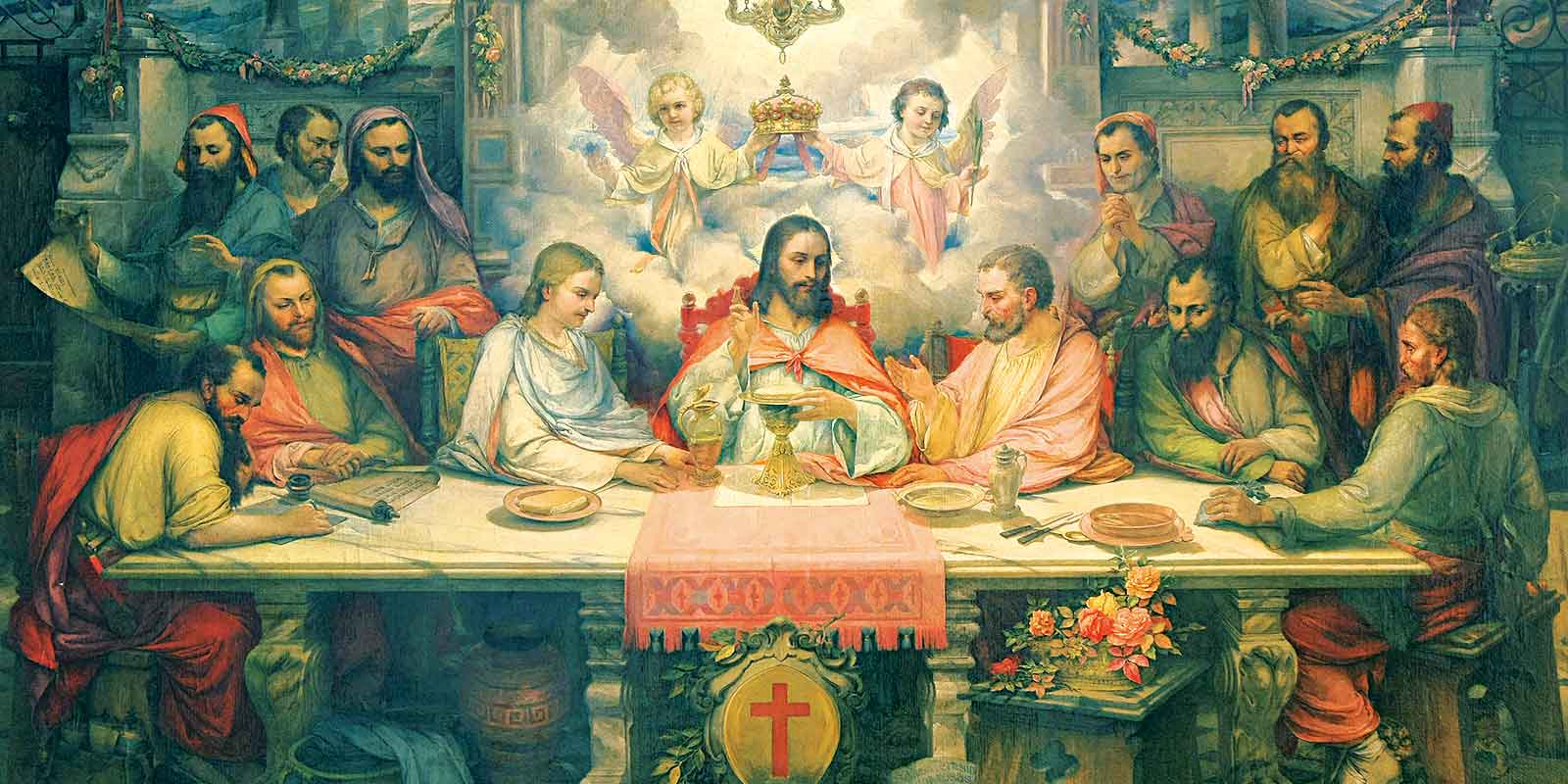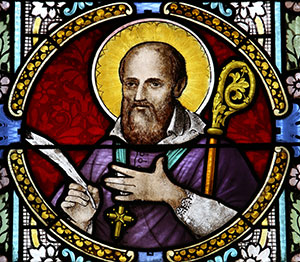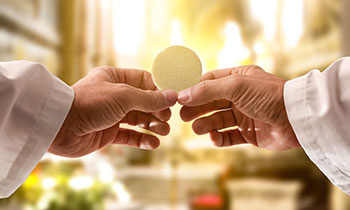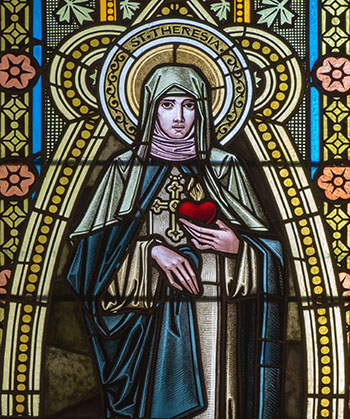
The Eucharist - Insights from the Saints
The Eucharist, a deeply cherished Catholic tradition, is celebrated for its extraordinary ability to transform, heal, and bring believers together in spiritual communion. Through the insights of various saints and thinkers throughout history, we can appreciate the many layers of meaning this sacrament holds, highlighting its power and grace.
 St. Francis de Sales profoundly notes, "One well-lived Holy Communion is capable of making us holy and perfect." This statement underscores the transformative potential of the Eucharist. While many individuals partake in the sacrament regularly, it is the depth of their engagement and willingness to embrace its spiritual nourishment that truly elevates the soul and propels the journey toward holiness.
St. Francis de Sales profoundly notes, "One well-lived Holy Communion is capable of making us holy and perfect." This statement underscores the transformative potential of the Eucharist. While many individuals partake in the sacrament regularly, it is the depth of their engagement and willingness to embrace its spiritual nourishment that truly elevates the soul and propels the journey toward holiness.
St. Augustine provides a striking analogy to illustrate the unique nature of this sacred practice: "When we consume the Eucharist, something opposite than usual happens. When you eat other bread, you assimilate it, and each time it partially becomes you. However, this other Bread is stronger than you. Therefore, you won't be able to transform it; instead, it will transform you: every time, you become, in part, what this Bread is." This description captures the Eucharist's ability to transcend ordinary experience, filling the faithful with divine strength and essence.
St. Charles Borromeo highlights the sacrificial love central to the Eucharist, reflecting on Jesus's journey: "Jesus came down from heaven because He wanted our good; out of love for us, He allowed Himself to be scourged; He fasted, faced temptations, endured insults, and ultimately death; during the Last Supper, He showed His incredible love by instituting the Blessed Sacrament of His Body." This profound narrative emphasizes the Eucharist as a testament to Christ's unwavering devotion and sacrifice for the salvation of humanity.
 Additionally, St. John Bosco expresses the universal necessity of Communion: "Everyone needs the Eucharist: the good, to stay good, and the wicked, to become good. Communion is not just for saints but for those aspiring to be saints. Just as medicines are given to the sick, the weak are provided with food." This inclusivity portrays the Eucharist as a source of spiritual nourishment and healing, accessible to all who wish to grow in grace and virtue.
Additionally, St. John Bosco expresses the universal necessity of Communion: "Everyone needs the Eucharist: the good, to stay good, and the wicked, to become good. Communion is not just for saints but for those aspiring to be saints. Just as medicines are given to the sick, the weak are provided with food." This inclusivity portrays the Eucharist as a source of spiritual nourishment and healing, accessible to all who wish to grow in grace and virtue.
Furthermore, the mystery of the Eucharist goes beyond what our senses can grasp, as St. Thomas Aquinas observes: "The real presence of the Body and Blood of Christ in the Eucharist cannot be perceived by senses or reason, but only by faith." This perspective encourages believers to approach the sacrament with an open heart, accepting Christ's presence through faith rather than relying solely on empirical evidence.
St. Raphael Kalinowski emphasizes the significance of preparation and reflection: "It is not the frequency of approaching the Lord's Table that profits the soul, but also the proper preparation for it, and moreover, the practical benefit of this Heavenly Food by acquiring virtues and avoiding those defects that creep into habits." The true value of the Eucharist lies not only in participation but also in the transformative impact it has on our daily lives.
 Moreover, the powerful words of St. John Paul II highlight the enduring importance of the Eucharist: "For over half a century, since that memorable November 2, 1946, when I celebrated my first Mass in the crypt of St. Leonard in Krakow's cathedral at Wawel, my gaze rests every day on the white Host and chalice, in which time and space seem to 'concentrate,' and the drama of Golgotha is repeated live, revealing its mysterious 'presentness.' This is the Church’s treasure, the heart of the world, the guarantee of the goal towards which everyone, even unknowingly, is heading." His lifelong commitment underscores this sacrament’s power to connect the temporal with the eternal, guiding believers toward divine communion that transcends time and place.
Moreover, the powerful words of St. John Paul II highlight the enduring importance of the Eucharist: "For over half a century, since that memorable November 2, 1946, when I celebrated my first Mass in the crypt of St. Leonard in Krakow's cathedral at Wawel, my gaze rests every day on the white Host and chalice, in which time and space seem to 'concentrate,' and the drama of Golgotha is repeated live, revealing its mysterious 'presentness.' This is the Church’s treasure, the heart of the world, the guarantee of the goal towards which everyone, even unknowingly, is heading." His lifelong commitment underscores this sacrament’s power to connect the temporal with the eternal, guiding believers toward divine communion that transcends time and place.
Ultimately, the Eucharist remains a mystery that eludes complete human understanding, providing a source of spiritual strength, unity, and love. As St. Teresa of Lisieux observes, "If people knew the value of the Eucharist, security personnel would have to manage the crowd at the entrance to churches."
Indeed, it is through this sacred tradition that believers discover solace, transformation, and a deep connection to the divine.
Discover more about the Eucharist:

Donate Today!
Your offering to Divine Word helps our missionaries bring the Gospel of Christ to the poor and forgotten around the world.